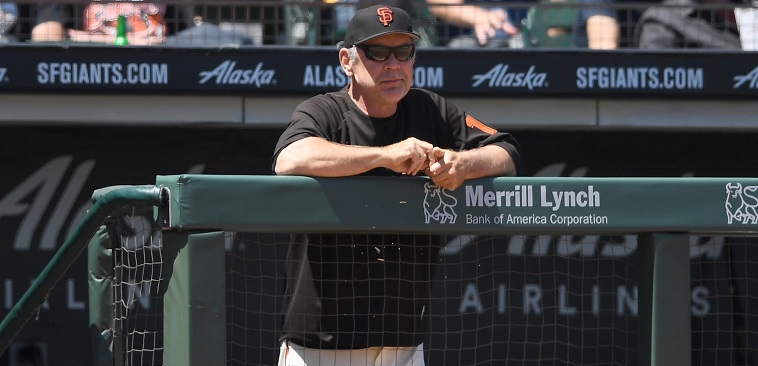In the world of professional sports, there is no substitute for talent. But extraordinary talent never reaches its full potential without good chemistry, and good chemistry improves with great leadership. Here’s how Bruce Bochy, manager of the San Francisco Giants creates the conditions for chemistry to flourish.
1. Players are people first
This requires a fundamental shift in how management sees players. Professional sports is big business. Athletes who put themselves on the bidding block for millions of dollars become the unofficial “property” of clubs who will program and hone them into winning revenue machines. Players become “our most important assets,” “our payroll” and our “acquisition costs.” They are treated like “commodities” traded in the open market.
Property. Products. Assets. Commodities. How can we create impassioned teams that do amazing work when we talk about people in such objectified, dehumanizing terms?
Bochy sees it like this: “For me it’s about who you see first. Do you see a player or a person? An opportunity or a human being? A statistical profile or someone with hopes, dreams, needs and a family? A person or an asset that can be leveraged in a trade?”
What if our organizations were as human as the human beings in them?
The San Francisco Giants don’t see people as a commodity to be managed to grow revenue; they see revenue as a commodity to be managed to grow people and grow the community.
Bochy has figured out that chemistry is born from treating individuals as human beings, not units of production.
“I want our players to know that through all the frustrations, disappointments, victories, and celebrations I care about them as people. They aren’t toys we can pull out of the box and play with anytime we want. They aren’t robots who perform exactly the way we think they should just because we punch in a code based on some statistic. And, they aren’t pawns in a game. They are real people, with real lives, who have real feelings.
2. Mine the story behind the story
Great leaders make people feel significant simply by being interested in their lives. Nobody wants to be anonymous. When people are interested in us it says: “We value you because you are valuable. You matter.” It makes you feel like family rather than an insignificant weed waiting to be pulled for a better crop.
When Bochy talks to his players, they will tell you that he’s fully present, not somewhere else. He doesn’t just stop talking, he invites players to engage by asking “hospitable” questions and then, he gives them space to do so.
Bochy explains, “Nobody in our club wakes up in the morning and says, ‘How can I screw it up for the other guys today?’ But if a player does something to negatively affect me or another player or the team, it’s easy to demonize them without ever asking, ‘What’s driving this? What’s behind the behavior?’ If we don’t get to what’s going on underneath it, we might miss an opportunity to make a bad situation better.”
How many times have you missed an opportunity to lead or screwed up an opportunity to instill confidence in someone because you couldn’t get past the veneer?
The people you lead right now want to know: Do you hear me? Do you see me? Do you understand me? Do you care about me? Do you see the worth in me? The story behind the story isn’t going to present itself on the spreadsheets and printouts prepared by the statisticians. It is not on the resume or their Linked In profile. You have to be interested enough to go get it.
3. Expectations matter
Every team wants to make a run at the World Series. Many teams have the raw talent to do it, but only two teams get there each season. The challenge comes when what a team wants is not what it expects. There is a difference between what we can do and what we will do. The talent of a team determines what it can do. Expectations determine what it will do.
Bochy is no pushover. He expects a lot from individual team members. This creates an atmosphere where team members expect a lot from themselves. Players who expect a lot from themselves also expect a lot from other players. This cycle elevates the entire team. Here’s why.
- Expectations elevate. Leaders elevate us with their expectations. They push us to see beyond what we see. Their expectations whisper: “I see something in you that you don’t yet see in yourself. But trust me, I wouldn’t put you in this position or ask this of you if I didn’t think you could do it.”
- Expectations overwhelm doubt. Players (people) rarely bring their best selves to the game when they are faced with doubt, when they are operating out of fear. Who does? Doubt undermines confidence. Bochy is a realist, but he has an extraordinary ability to give people the “benefit of belief.” It’s about seeing the potential in players, who they can be, and then telling them with no BS that he has confidence in them.
- Expectations clarify. Great players want to know where a manager is going, how she/he plans to get there, and how they fit into the equation. Everyone needs a north star. Bochy is laser clear about these things because he was a player. He knows it builds trust and instills confidence in a club.
Jackie and Kevin Freiberg are co-authors of “NUTS! Southwest Airlines’ Crazy Recipe for Business and Personal Success” and the recently published “Bochy Ball: The Chemistry of Winning and Losing in Baseball, Business and Life.”
If you enjoyed this article, sign up for SmartBrief’s free e-mail on leadership and communication, among SmartBrief’s more than 200 industry-focused newsletters.
